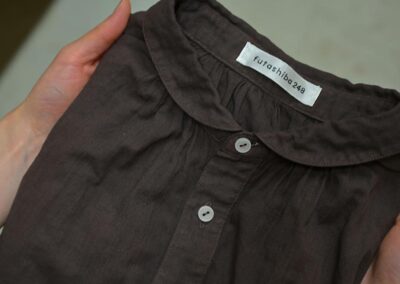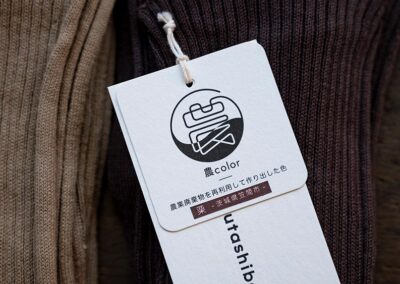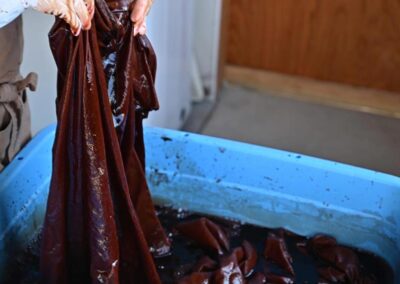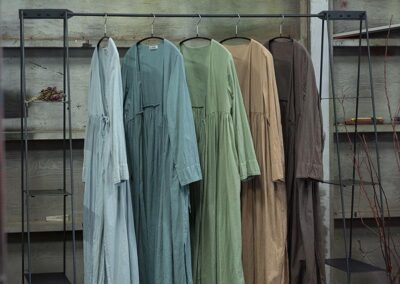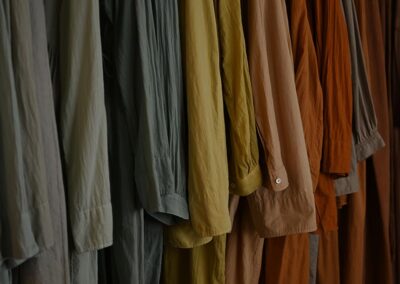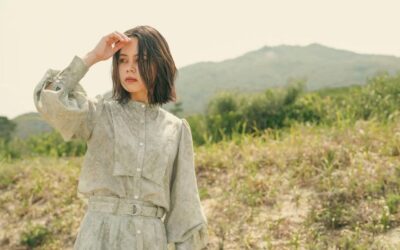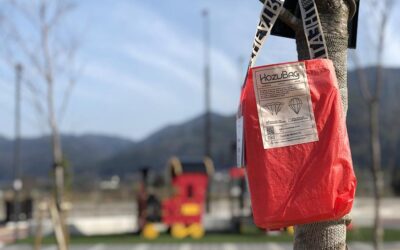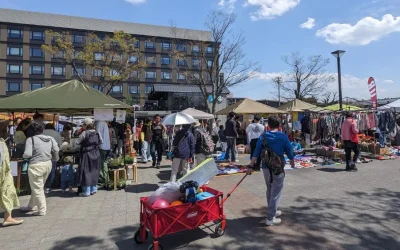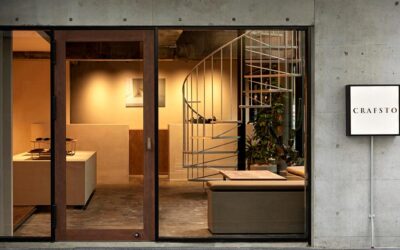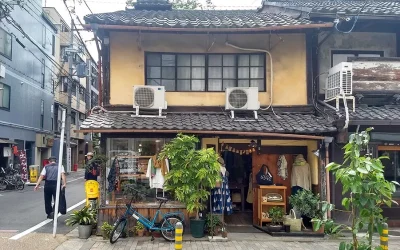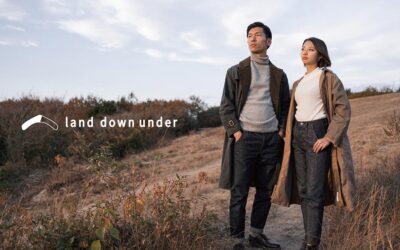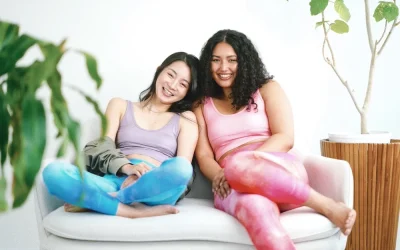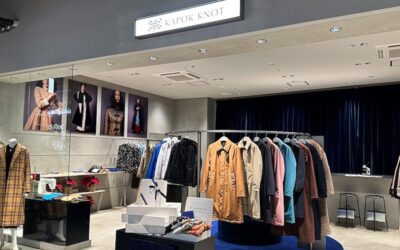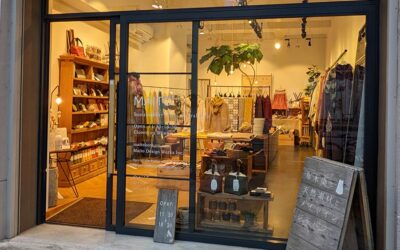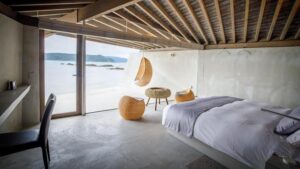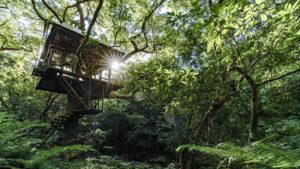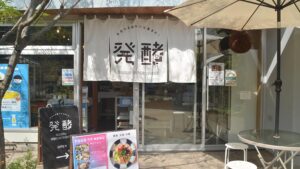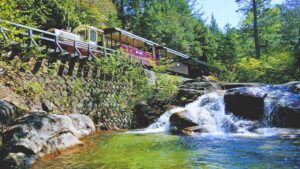Upcycle dye creators adding color to agricultural waste in Ibaraki
Like many youths who live in local areas of Japan, Masafumi Seki—a native of Tsukuba City, Ibaraki Prefecture—longed to live in Tokyo when he was a high school student. Therefore, when the opportunity came to study fashion at a Tokyo vocational school after graduating high school, he didn’t think twice. Even after finishing the school, he got an apparel-related job in Tokyo and stayed on. However, after 10 years of living and working in the big city, he started to have doubts about continuing to stay. That’s when he got an invitation from his father to go pick apples in Ibaraki’s Daigo Town.
“I never knew that you could pick apples in Ibaraki although I was brought up there. Local farmers told me there were few people who knew. I was deeply moved by the nature-rich apple garden,” Seki said in an interview.
Seki—who had experience in dyeing—wondered what kind of color the apples would produce if he dyed them. In noticing his fascination, a local framer provided him with some apples from a pruned apple tree, which Seki took home to experiment.
“I was amazed with the beautiful yellow color it produced. Ibaraki Prefecture is said to be the second largest agricultural prefecture after Hokkaido, so I thought there are likely to be other products that get discarded in the process of agricultural work. I thought, maybe I could do something to convey the charm of the area let alone the farmers, through the color I produce.”
Ibaraki ultimately became the place where he rediscovered nature again. In no time, Seki left Tokyo to settle in Tsuchiura City, Ibaraki Prefecture. In August 2018, he founded fashion brand futashiba248 with his wife Yuko, specializing in clothes made from scratch with dye derived from agricultural waste inherited from Ibaraki’s local farmers. Their clothes are free of chemicals and kind to the environment—even the dye materials are dried, crushed, mixed with soil and used as compost after use.
Furthermore, the brand works toward reducing resource loss by using materials with low environmental impact like organic cotton and Japanese paper. It also incorporates build-to-order manufacturing and tackles genderless design and size development.
“The design of the clothes is a homage to workwear of the good old days,” Seki said. “I try to keep the design as simple and easy to use as possible, regardless of gender and age.”
They color of the clothes—characterized by the deep color unique to natural dyes—is produced from agricultural waste they gain from local farmers including branches, leaves and skin etc. from pruned trees. That’s not all. There are more than 10 types of dyeing materials used including chestnuts of Kasama City, blueberries of Omitama City, and apples of Daigo Town. All the work is done by hand, so every item comes out in different color. That too is part of the brand’s appeal.
“We named our color, ‘no (agricultural) color,’ Seki explained. “It’s such a waste to throw away something local farmers have put so much effort into raising. Our idea is to bring out the best in agricultural products and their potential.” Seki hopes that through their brand, people will rethink about discarding things easily.
“The world is full of things—many are cheap and easy to buy, and a lot of them are easily thrown away when they are no longer in need. But even the branches and leaves that are normally thrown away can reproduce such beautiful colors like ours. I hope people take a minute to think about taking good care of their things and continue using them for a long period of time.”
Like many Japanese rural areas, Ibaraki too is facing issues of aging farmers and shortage of successors. In situations like these, farmers have no choice but to discard leaves, stems, and more that are produced every day. The cost to do this is a big burden on them, so futashiba248’s upcycling effort helps reduce that weight. It also brings about a new appeal for the region’s agricultural products other than food, which ultimately works toward lifting the motivation of its producers.
“We were able to meet various people through our activity including farmers,” Seki said. “I hope to continue our activities working closely with the community.”
That the number of colleagues who have the same kind of consciousness toward the environment increased through their activities, was something Seki found exciting.
“In order to further revitalize Ibaraki, we started a project through crowdfunding to create agricultural colors of Ibaraki’s 44 cities, towns and villages. When we’ve completed every dye, we hope we can organize something like a ‘no (agricultural) color’ fashion show or book!”

